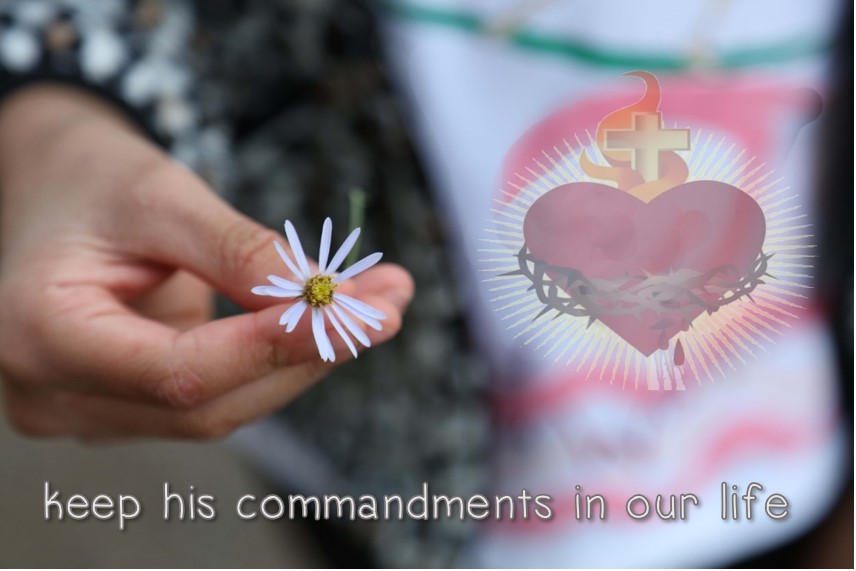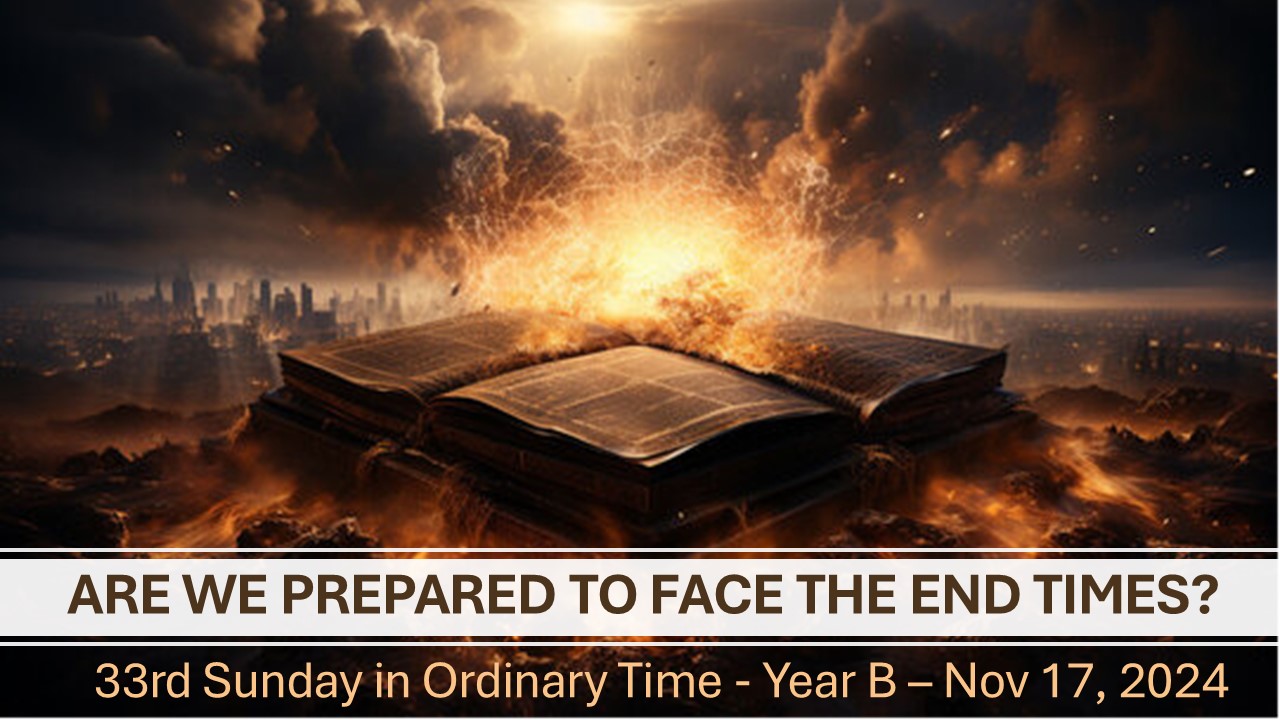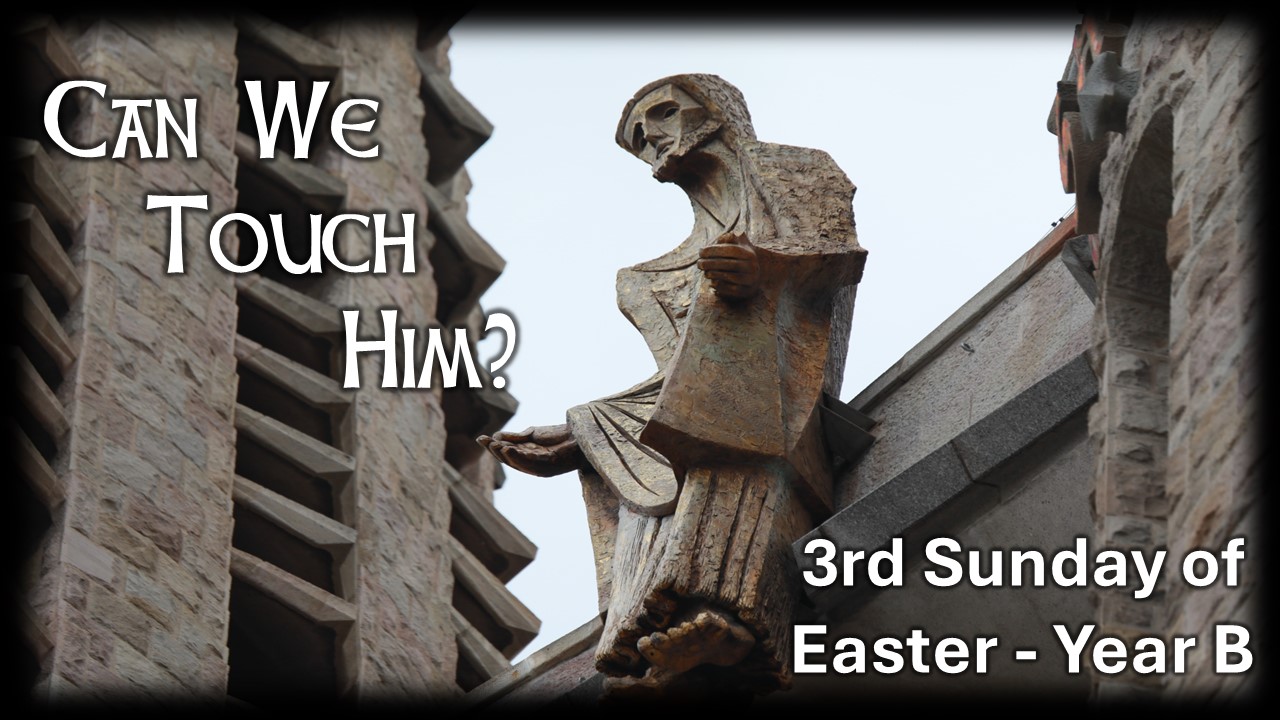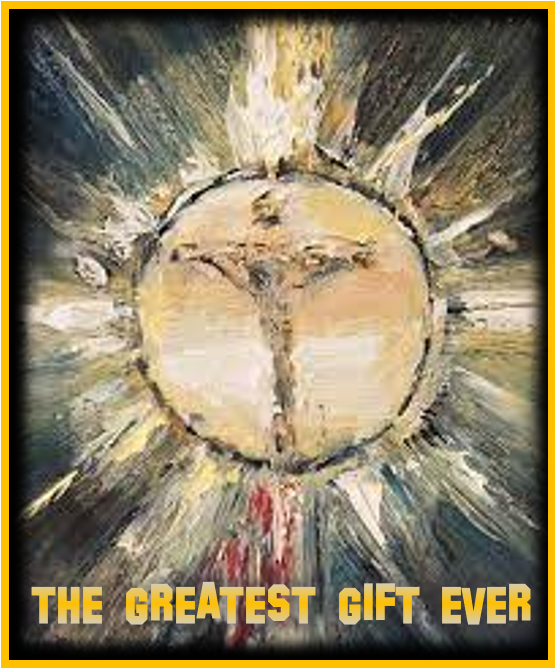
15th Sunday in Ordinary Time Year C ~ July 10, 2022
IN OUR HEARTS
Long ago, a young man went in search of a perfect master. He was determined to find him, even if he had to go around the world. However, when he began his journey, just outside his village, he saw an old man who was sitting under a tree. This young man went to him and said “you look a wanderer…Are you? Old man replied, “Yes, I am a wanderer, I wandered all over the earth”. The young man thought to himself that old man looks like right person to ask his question. So, he said, “Can I ask you a question?” Old man replied, “Sure”. Man, then said, “I want to be a disciple of a Perfect Master. Can you suggest to me where I can go? Where can I find him?” Oldman suggested a few addresses to him. Young man thanked him went on. Man wandered for thirty years around the earth, and he found no body who was up to his expectations. He dejected and depressed. He decided to come back to his village. When he was entering his village, he saw same old man who had become very old, sitting under tree and suddenly he recognized him as his Master! He fell at his feet and said, “Why didn’t you say it to me, that you are the master?” Old man said, “But that was not the time for you. You couldn’t recognize me at that time. You needed some experience. Wandering around earth has given you a certain maturity, a certain understanding. Now you can see. Last time we met you did not see me. You had missed. You were asking me about some Master. That was enough proof that you couldn’t see me, couldn’t feel my presence, you couldn’t smell the fragrance. You were utterly blind, hence I gave you some addresses, so you could go. Even to be with wrong people is good because that how one learns. For thirty years I have been waiting for you, I have not left this place, this tree”.
Young man was not young anymore, looked at the tree and even more surprised because at that time he remembered that in his dreams, in his visions he was always seeing that tree and there was always a feeling that he would find his Master sitting under this tree. He realized that thirty years back, he didn’t see the tree, he met Master but couldn’t recognize him. Everything was ready but he was not.
Are we ready to recognize Jesus our Perfect Master? Through the Holy Bible we learn how to live our faith-filled life and follow Jesus as St. Jerome says, “ignorance of Scripture is ignorance of Christ”. St. Augustine highlights the importance of the Sacred Scripture in our day-to-day life as he reflects on Psalms; “We entreat you, brothers, as earnestly as we are able, to have charity, not only for one another, but also for those who are outside the Church. Of these some are still pagans, who have not yet made an act of faith in Christ. Others are separated, insofar as they are joined with us in professing faith in Christ, our head, but are yet divided from the unity of his body. My friends, we must grieve over these as over our brothers; and they will only cease to be so when they no longer say Our Father. The prophet refers to some men saying: When they say to you: You are not our brothers, you are to tell them: You are our brothers. Consider whom he intended by these words. Were they the pagans? Hardly, for nowhere either in Scripture or in our traditional manner of speaking do we find them called our brothers. Nor could it refer to the Jews, who do not believe in Christ. Read Saint Paul and you will see that when he speaks of “brothers,” without any qualification, he refers always to Christians. For example, he says: Why do you judge your brother or why do you despise your brother? And again: You perform iniquity and common fraud, and this against your brothers”.
He continues to say, “Those then who tell us: You are not our brothers, are saying that we are pagans. That is why they want to baptize us again, claiming that we do not have what they can give. Hence their error of denying that we are their brothers. Why then did the prophet tell us: Say to them: You are our brothers? It is because we acknowledge in them that which we do not repeat. By not recognizing our baptism, they deny that we are their brothers; on the other hand, when we do not repeat their baptism but acknowledge it to be our own, we are saying to them: You are our brothers. If they say, “Why do you seek us? What do you want of us?” we should reply: You are our brothers. They may say, “Leave us alone. We have nothing to do with you.” But we have everything to do with you, for we are one in our belief in Christ; and so we should be in one body, under one head. And so, dear brothers, we entreat you on their behalf, in the name of the very source of our love, by whose milk we are nourished, and whose bread is our strength, in the name of Christ our Lord and his gentle love. For it is time now for us to show them great love and abundant compassion by praying to God for them. May he one day give them a clear mind to repent and to realize that they have nothing now but the sickness of their hatred, and the stronger they think they are, the weaker they become. We entreat you then to pray for them, for they are weak, given to the wisdom of the flesh, to fleshly and carnal things, yet they are our brothers. They celebrate the same sacraments as we, not indeed with us, but still the same. They respond with the same Amen, not with us, but still the same. And so, pour out your hearts for them in prayer to God”.
In the First Reading we see how Moses is instructing Israelites to “obey the Lord your God by observing his commandments and decrees that are written in the book of the Law; turn to the Lord your God with all your heart and with all your soul”. The Word of God helps us to examine ourselves and change ourselves according to the commandments of the Lord. An important truth is to remember we live in a covenant relationship with God. God has made a covenant with us in Jesus Christ. We call this the Covenant of Grace, which basically means that God now relates to us in Jesus Christ. All that Jesus Christ has accomplished is freely given to us and therefore it is a Covenant of Grace. As our Mediator Jesus has obtained salvation for us and earned all the spiritual blessings of the covenant for us by meeting all God’s perfect requirements and now freely shares with us all the benefits that He has earned. What is the heart of the covenant? Obviously, it is God sovereignly entering into a bond of fellowship and friendship with His people. As Reformed Christians, the covenant forms the main framework within which we understand our salvation. Sometimes the tendency is for us to theorise covenant at the cost of personal application. But we must be careful here because even though the covenant is unconditionally administered by God, He requires that we be obedient to His word. Closely aligned with God’s grace is His law. By law I am referring to God’s moral law found in the Ten Commandments and its general application given to us in the Mosaic Law and the Prophets of the Old Testament. The reason why I specifically want to stress the importance of covenant obedience is because this is the basis upon which we experience the richness of God’s presence in fellowship.
Is it difficult to keep God’s commandments in our hearts? Moses says “No, the word is very near to you; it is in your mouth and in your heart for you to observe”. If we keep the commandments of the Lord in our hearts, then God himself will strengthen us and help us to believe that he walks with us as God says to Joshua “Be strong and courageous; for you shall put this people in possession of the land that I swore to their ancestors to give them. Only be strong and very courageous, being careful to act in accordance with all the law that my servant Moses commanded you; do not turn from it to the right hand or to the left, so that you may be successful wherever you go. This book of the law shall not depart out of your mouth; you shall meditate on it day and night, so that you may be careful to act in accordance with all that is written in it. For then you shall make your way prosperous, and then you shall be successful. I hereby command you: Be strong and courageous; do not be frightened or dismayed, for the Lord your God is with you wherever you go.” And the Psalmist says ‘Seek God in your need, and let your hearts revive” which reminds us that once we keep his commandments in our hearts, he being our Good Shepherd grants us our needs. Following is the story by an unknown author to help us to keep him in our hearts.
I once watched a most incredible thing. I watched a small bird trying to gather string, which I presumed would have gone into the building of a nest. It is amazing that this little creature acting on instinct alone would gather this kind of material for building. You see, a bird cannot reason, “A piece of string would be nice to use for building my nest, so I’ll take it.” God has given this little bird the natural instinct to function. You probably are thinking, “What’s so incredible about watching a bird do what it naturally does?” I watched as the bird made several attempts to gather the string. She would pick up one end of the string in her beak and fly upward, but the string would fall, and she would try again. This activity went on for several minutes. What made this so incredible to me was that the other end of the string was attached to a boat sitting on a boat trailer.
I thought of the bird’s PERSISTENCE in her efforts. No matter how many times she failed, the bird kept on trying. How often do you and I show this kind of persistence in our endeavors? Even though the odds of getting that particular piece of string were greatly against the bird, I found myself hoping that she would succeed. I thought of the bird’s FOCUS on the string. She was oblivious to the fact that the string was attached to an immovable object. All she saw was the string, and she went after it. How often do we keep a singular focus on a particular goal? Too often we allow our focus to scatter to several objectives, and then we wonder why we don’t succeed in achieving any of them.
I thought the bird had great CONFIDENCE. Her intention was to get that string. The bird was not deterred by the fact that a large boat was in her way. Watching the scene unfold as time and again the bird would try to fly away with that string, I almost expected to see the boat lift off the ground. We need to be PERSISTENT, FOCUSED, and CONFIDENT in our efforts as we serve the Lord. I am sure we will find more success in our endeavors.
What a beautiful illustration for us to focus our eyes on the Lord and trust him. St. Paul in the Second Reading offers us a profound vision of the centrality of Jesus. He presents Christ to us as the first-born of all creation: in him, through him and for him all things were created. He is the centre of all things, he is the beginning: Jesus Christ, the Lord. God has given him the fullness, the totality, so that in him all things might be reconciled. He is the Lord of creation; he is the Lord of reconciliation. This image enables to see that Jesus is the centre of creation; and so the attitude demanded of us as true believers is that of recognizing and accepting in our lives the centrality of Jesus Christ, in our thoughts, in our words and in our works. And so our thoughts will be Christian thoughts, thoughts of Christ. Our works will be Christian works, works of Christ; and our words will be Christian words, words of Christ. But when this centre is lost, when it is replaced by something else, only harm can result for everything around us and for ourselves. Secondly, besides being the centre of creation and the centre of reconciliation, Christ is the centre of the people of God. It is he who cares for his people, for all of us, even at the price of his life. In him we are all one, one people, united with him and sharing a single journey, a single destiny. Only in him, in him as the centre, do we receive our identity as a people. If Jesus is the center of our lives, then we must keep him in our hearts.
In the Gospel today a young man who is lawyer by profession is looking for an answer to live a better life by observing the commandments of the Lord. I believe his question should be ours “Teacher, what must I do to inherit eternal life?” The answer of Jesus to him, is an open invitation for us to examine ourselves if we are keeping his commandments in our hearts. There are two parts of the Gospel; first is the instruction and a reminder about keeping the commandments and secondly an example of living the commandment by the parable of Good Samaritan. The Gospel indicates that the Lord wants to be Christian by action than by words. St. Mother Teresa is the best example of today’s Gospel in our recent era.
St. Ambrose has beautiful explanation for people who not only keep God’s commandments in their hearts but also act accordingly. He writes “My Father and I will come and make our home with him. Let your door stand open to receive him, unlock your soul to him, offer him a welcome in your mind, and then you will see the riches of simplicity, the treasures of peace, the joy of grace. Throw wide the gate of your heart, stand before the sun of the everlasting light that shines on every man. This true light shines on all, but if anyone closes his window, he will deprive himself of eternal light. If you shut the door of your mind, you shut out Christ. Though he can enter, he does not want to force his way in rudely or compel us to admit him against our will. Blessed then is the man at whose door Christ stands and knocks. Our door is faith; if it is strong enough, the whole house is safe. This is the door by which Christ enters. So, the Church says in the Song of Songs: The voice of my brother is at the door. Hear his knock, listen to him asking to enter: Open to me, my sister, my betrothed, my dove, my perfect one, for my head is covered with dew, and my hair with the moisture of the night. When does God the Word most often knock at your door? Our soul has a door; it has gates. Lift up your heads, O gates, and be lifted up, eternal gates, and the King of glory will enter. If you open the gates of your faith, the King of glory will enter your house in the triumphal procession in honor of his passion”.
As I said early, todays’ Gospel has twofold meanings to keep God’s commandments in our hearts and act to show the message in a practical way. This indicates a way of life, which has as its main point not ourselves, but others, with their difficulties, whom we encounter on our journey and who challenge us. Others challenge us. And when others do not challenge us, something is not right; something in the heart is not Christian. Holy Father Pope Francis reflects on the Gospel in this way “Jesus uses this parable in his dialogue with a lawyer when asked about the twofold commandment that allows us to enter into eternal life: to love God with your whole heart and your neighbour as yourself. “Yes”, the lawyer replies, “but, tell me, who is my neighbour?”. We too can ask ourselves this question: Who is my neighbour? Who must I love as myself? My parents? My friends? My fellow countrymen? Those who belong to my religion?… Who is my neighbour?” Jesus responds with parable of Good Samaritan.
At this point, Jesus turns to the lawyer and asks him: “Which of these three — the priest, the Levite, or the Samaritan — do you think was a neighbour to the man who fell victim to the robbers?”. And the lawyer, of course — because he was intelligent —, said in reply: “The one who had compassion on him”. In this way, Jesus completely overturned the lawyer’s initial perspective — as well as our own! —: I must not categorize others in order to decide who is my neighbour and who is not. It is up to me whether to be a neighbour or not — the decision is mine — it is up to me whether or not to be a neighbour to those whom I encounter who need help, even if they are strangers or perhaps hostile. And Jesus concludes, saying: “Go and do likewise”.
A cold March wind danced around the dead of night in Dallas as the doctor walked into the small hospital room of Diana Blessing. She was still groggy from surgery. Her husband, David, held her hand as they braced themselves for the latest news. That afternoon of March 10, 1991, complications had forced Diana, only 24-weeks pregnant, to undergo an emergency Cesarian to deliver couple’s new daughter, Dana Lu Blessing. At 12 inches long and weighing only one pound nine ounces, they already knew she was perilously premature. Still, the doctor’s soft words dropped like bombs. “I don’t think she’s going to make it,” he said, as kindly as he could. “There’s only a 10-percent chance she will live through the night, and even then, if by some slim chance she does make it, her future could be a very cruel one” Numb with disbelief, David and Diana listened as the doctor described the devastating problems Dana would likely face if she survived. She would never walk, she would never talk, she would probably be blind, and she would certainly be prone to other catastrophic conditions from cerebral palsy to complete developmental disabilities.
“No! No!” was all Diana could say. She and David, with their 5-year-old son Dustin, had long dreamed of the day they would have a daughter to become a family of four. Now, within a matter of hours, that dream was slipping away. But as those first days passed, a new agony set in for David and Diana. Because Dana’s underdeveloped nervous system was essentially ‘raw’, the lightest kiss or caress only intensified her discomfort, so they couldn’t even cradle their tiny baby girl against their chests to offer the strength of their love.
All they could do, as Dana struggled alone beneath the ultraviolet light in the tangle of tubes and wires, was to pray that God would stay close to their precious little girl. There was never a moment when Dana suddenly grew stronger. But as the weeks went by, she did slowly gain an ounce of weight here and an ounce of strength there.
At last, when Dana turned two months old. her parents were able to hold her in their arms for the very first time. And two months later, though doctors continued to gently but grimly warn that her chances of surviving, much less living any kind of normal life, were next to zero, Dana went home from the hospital, just as her mother had predicted.
Five years later, when Dana was a petite but feisty young girl with glittering gray eyes and an unquenchable zest for life. She showed no signs whatsoever of any mental or physical impairment. Simply, she was everything a little girl can be and more. But that happy ending is far from the end of her story.
One blistering afternoon in the summer of 1996 near her home in Irving, Texas, Dana was sitting in her mother’s lap in the bleachers of a local ballpark where her brother Dustin’s baseball team was practicing. As always, Dana was chattering nonstop with her mother and several other adults sitting nearby when she suddenly fell silent. Hugging her arms across her chest, little Dana asked, “Do you smell that?”
Smelling the air and detecting the approach of a thunderstorm, Diana replied, “Yes, it smells like rain.” Dana closed her eyes and again asked, “Do you smell that?”
Once again, her mother replied, “Yes, I think we’re about to get wet. It smells like rain.” Still caught in the moment, Dana shook her head, patted her thin shoulders with her small hands and loudly announced, “No, it smells like Him. It smells like God when you lay your head on His chest.”
Tears blurred Diana’s eyes as Dana happily hopped down to play with the other children. Before the rains came, her daughter’s words confirmed what Diana and all the members of the extended Blessing family had known, at least in their hearts, all along. During those long days and nights of her first two months of her life, when her nerves were too sensitive for them to touch her, God was holding Dana on His chest and it is His loving scent that she remembers so well.
We can smell God only if we keep his commandments in our life. Do we keep them in our hearts? Let’s ask ourselves.
Other Sermons In This Series

33rd SUNDAY IN ORDINARY TIME YEAR B ~ November 17, 2024
November 13, 2024

3rd Sunday of Easter Year B ~ April 14, 2024
April 12, 2024


